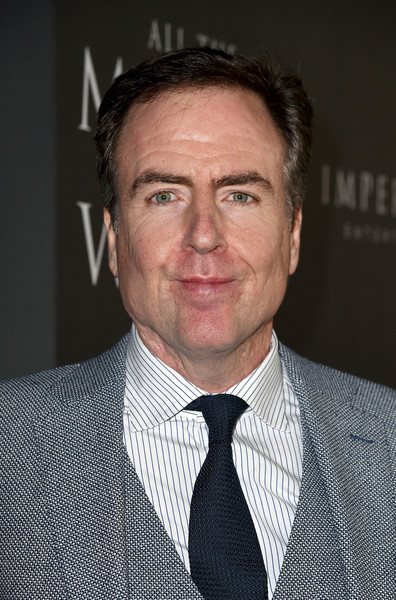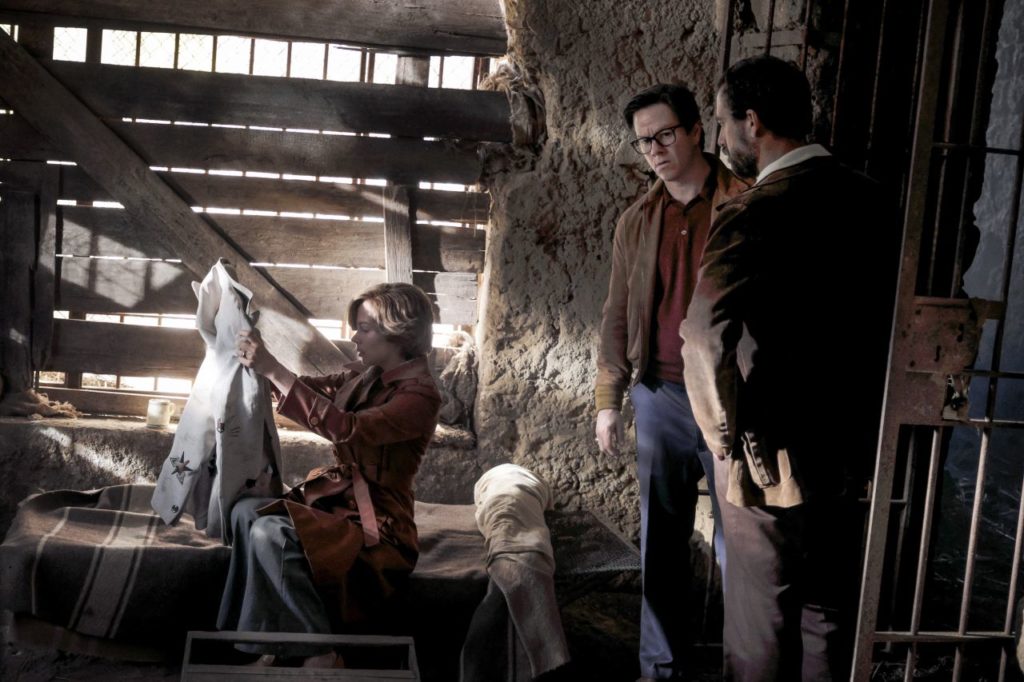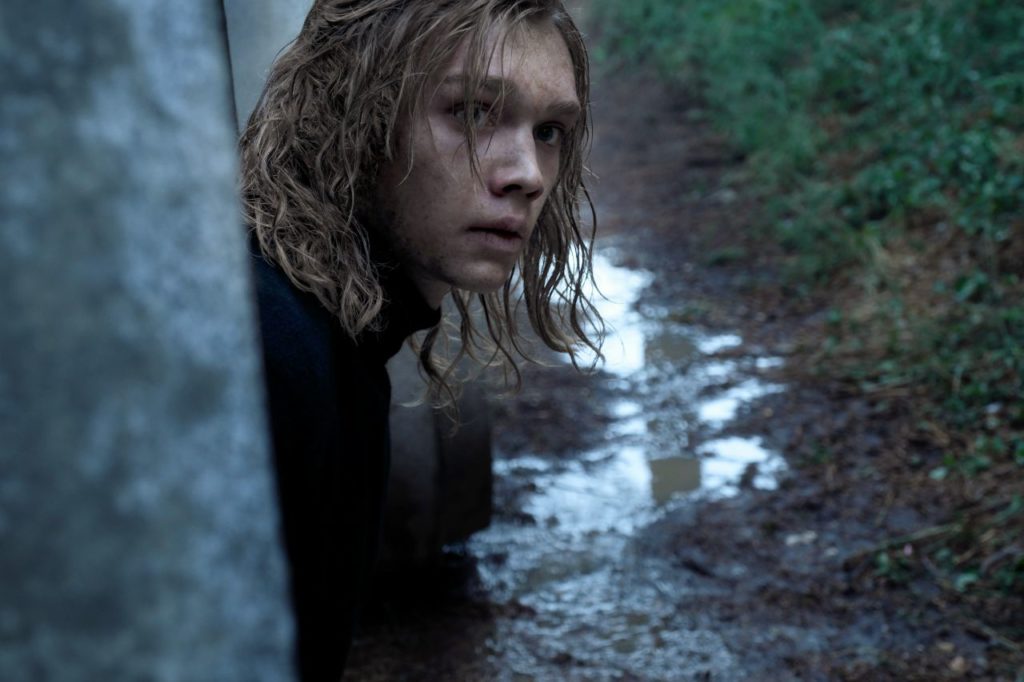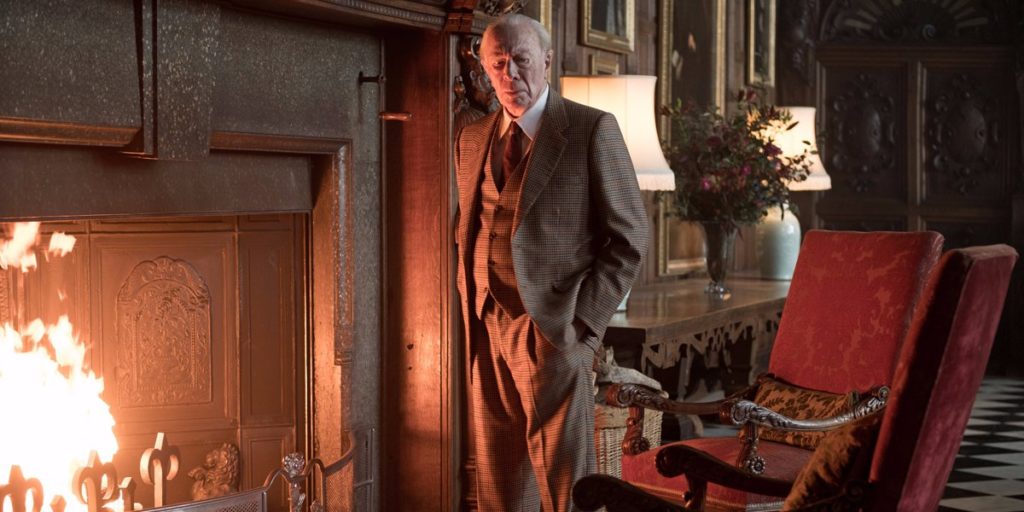Screenwriter David Scarpa first landed on my radar more than 15 years ago with the Rod Lurie directed “The Last Castle” starring screen legend Robert Redford, veteran James Gandolfini, and soap opera sensation Steve Burton in a stunning military-themed story of honor, loyalty, and ethics. As he demonstrated then and continues to do to this day, Scarpa has a gift not only for character study but character studies shaped by psychological pathology.
One of the most fascinating individuals of the 20th Century was J. Paul Getty. Once known as the “richest man in the world”, just pick any aspect of Getty’s life and there’s a story to be told on the screen or on the page. Using Getty’s wealth and the concept of the power of money as a pathological motivator or stronghold, Scarpa looked to one of the most infamous events in the Getty world as his entre to ALL THE MONEY IN THE WORLD – the July 1973 kidnapping in Rome of Getty’s 16-year old grandson J. Paul Getty III. The height of media frenzy across the globe, but particularly in the United States, as if the story wasn’t sufficiently sensational and shocking, adding fuel to the fire was Getty Sr.’s initial refusal to pay the $17 million ransom demand followed by the kidnappers cutting off Paul’s ear and lock of hair some five months later and mailing it to a newspaper before Paul’s eventual release. The ransom demand had dropped to a mere $3.2 million by that time. Ultimately, however, the kidnappers agreed to accept $2.9 million of which Getty paid $2.2 million due to it being the maximum sum deductible on his income taxes, and loaning the rest to his son and Gail at the rate of 4% interest.

Much like the Getty kidnapping itself, the world has followed with bated breath the final month leading up to the release of ALL THE MONEY IN THE WORLD, given director Ridley Scott’s last minute replacement of Kevin Spacey with Christopher Plummer as J. Paul Getty. Having seen the film, it is evident that no one but Plummer could have played the tycoon. Scarpa’s script is solid in its design and thematics as is the relative timeline of true events interspersed with the fictional, none of which was altered by Plummer’s late casting, serving not only as a testament to Plummer and his talent, but to Scarpa for writing a script with a character so tautly and keenly defined.
In this exclusive interview, the enthusiastic and gregarious David Scarpa talked about ALL THE MONEY IN THE WORLD.

Already a long time admirer of your work thanks to “The Last Castle”, I have an added level of appreciation of your work now thanks to ALL THE MONEY IN THE WORLD. I love your entre into the story as being the idea of money and wealth, and what it means, the connotations of it, and those connotations and perceptions as it relates to different people. With that in mind, I’m curious about your story construct. Was this a matter of reverse engineering with the idea of money first, and then stepping into the Getty kidnapping?
Oh, thank you so much! I think it was something that was in the back of my mind for a long time. Money is such a driving force, I think, in most people’s lives. It drives so many of our decisions, like staying in bad marriages because we’d have to change our lifestyle, or the careers we choose. All kinds of subtle things. And obviously it guides the lives of poor people as well in the sense that their lives are shaped in that way. And yet that sort of power that it has over us isn’t really reflected in movies, per se. You have heist movies, or things like that, but it’s not really reflected. And that seemed to me like a really fascinating subject to get into, but I didn’t really have a vehicle for it. Then, as I’ve said, one of the producers basically came to me and said he was optioning this chapter from this book, and he said it’s about the Getty kidnapping. I said, “Oh, yeah, that’s the thing where the boy got his ear cut off!” That was always sort of a horror story for me as a kid. If you grew up in that era, you’d heard that, and that was a very striking detail. And because the boy was a boy, too, as a child it seemed very horrifying. But I said, “Oh, yeah, there’s that.” I said an interesting detail from it is the fact that Getty himself was the richest man in the world at the time, and had all the money he needed to pay the ransom, and yet refused to pay the ransom. That, to me, was fascinating. [It] sort of turned the light bulb on over my head in the sense that most kidnapping movies are about practical problems. It’s where are we going to get the money, or how are we going to rescue the boy. In this case, there are no problems.

This was an ethical issue for him.
Yeah. It’s purely psychological. It’s like we can solve the problem tomorrow, you or I could solve that problem tomorrow, just pay the ransom and you’re done with it. And yet the barrier, the obstacle, was inside this guy’s mind. That seemed to me like a really fascinating way [in]. It was the power that money had over him that created this whole problem. In a sense, the bad guy in the movie is not any particular person, not even Getty himself. It’s the power of money over all of those people. That, to me, seemed like a really great sort of Shakespearean departure point for the entire thing. And from there, you sort of get into it and you do your research. There’s all these fascinating, insane sort of story points that you would never think of in a million years, or never necessarily believe. I was saying one of the reasons why doing a true story is so great is because real people do things that you would never believe from a fictional character.

Truth is stranger than fiction.
And people are truly insane. And that forces you to tell the story in a completely different way because characters in fictional movies make practical decisions. They make decisions based on reasons, which is “I’ve got to get out of this problem,” or “I’m faced with a problem. How do I solve my problem?” In the real world people make decisions based on the craziest stuff. So that basically was it. That was what drove it.

I vividly remember the incident because when Paul was kidnapped, it was the week of my birthday between going from junior high to high school. It was all over the American newspapers. The news was covering it. With that much archival publicity available, I’m curious as to your research and the decisions you made relative to the details and the story construct. Was it J. Paul Getty II who was originally brokering Paul’s release as opposed more to Paul’s mother Gail as depicted in the film?
No. In reality J. Paul Getty II was a drug addict at the time, a serious drug addict. Believe me, I think that sort of chemical dependency was something that was there, but J. Paul Getty II was out of the picture for the most part. It was J. Paul Getty and he didn’t really have the money. He kind of was refusing in a sense. He took himself out of it. It’s actually pretty close to what it’s depicted in the movie, which is Getty Sr. was the one who was going to have to pay the ransom, and he then deputized his head of security, Chase. I think what is distinct is – and this is something I think is a dramatic challenge – they really cut Gail [Paul’s mother] out of the picture in real life very aggressively in a way that is very hard for us to relate to 40 years later. We live, unfortunately, in a very chauvinistic world still, in a sense. But even so, today I don’t think anybody would dare say, “Oh, this is no business for a woman. You’re out of it.” You see what I mean? It would just be implausible. We wouldn’t believe it. And yet they really did it. They said the kidnapping is no business for a woman, and they aggressively cut her [out of the picture]. It was a whole bunch of men surrounding her in the form of Italian police, which were also very chauvinistic or sexist. I think, Michelle [Williams] said at the press conference, [Gail] is basically fighting just to be heard, just to get a seat at the table. In terms of pushing her forward, part of it was a matter of really wanting to give her that. And I think the real Gail was fighting. Sometimes she actually was, in reality, cut out of that, but a lot of these decisions that she made, she’s making these decisions that she’s fighting with, so it’s a constant struggle for her; for instance, the scene basically where you have where she’s signing away rights to her children.
But, yeah, J. Paul II really was not involved. He was involved with a famous model, Talitha Paul. They were in Marrakech. Talitha Paul died of an overdose, and he went even further off the rails and he basically became kind of a recluse in his huge house that he had in London. He really refused to engage on any level about the whole thing. It finally came down to this battle between Gail and Chase, and a battle between Gail and the old man.

What were some of the most interesting things that you discovered about the old man that you were able to insert in the script that really aren’t out there in public or common knowledge?
The challenge with him really was that he was so pathologically cheap. There’s a famous story of him having the phone booth in his house for people to use to make phone calls, and that was true. It’s all these things that you’d never believe necessarily. And we have a version of this sort of scene that takes place where he’s basically living kind of like a hoarder out of hotels and things like that. One of the biggest challenges, I think, of the movie was that guy could be a type. He could be Montgomery Burns from “The Simpsons” or whatever kind of a figure of the miser, which he truly was. He truly was a pathological miser. And how do you take that character and make him Shakespearean? It’s this sense that he’s addicted to money. The more that he makes, the poorer he feels, to the point where all of this is happening against the backdrop of the oil crisis of 1973, so he’s getting richer every day. Every day, he’s making more. The money he makes every single day is more than enough to pay the ransom. He’s making it just sleeping, and yet he feels poorer. The feeling passes. The brief high that he gets every time just passes. So, that’s really it. It’s really getting at the heart of that, I think, more than anything. The question that you ask when you read about all this is, why? Why didn’t the guy just pay the damn ransom? And, as I said, it’s the power that money has, I think, as much as anything.
by debbie elias, interview 12/06/2017











